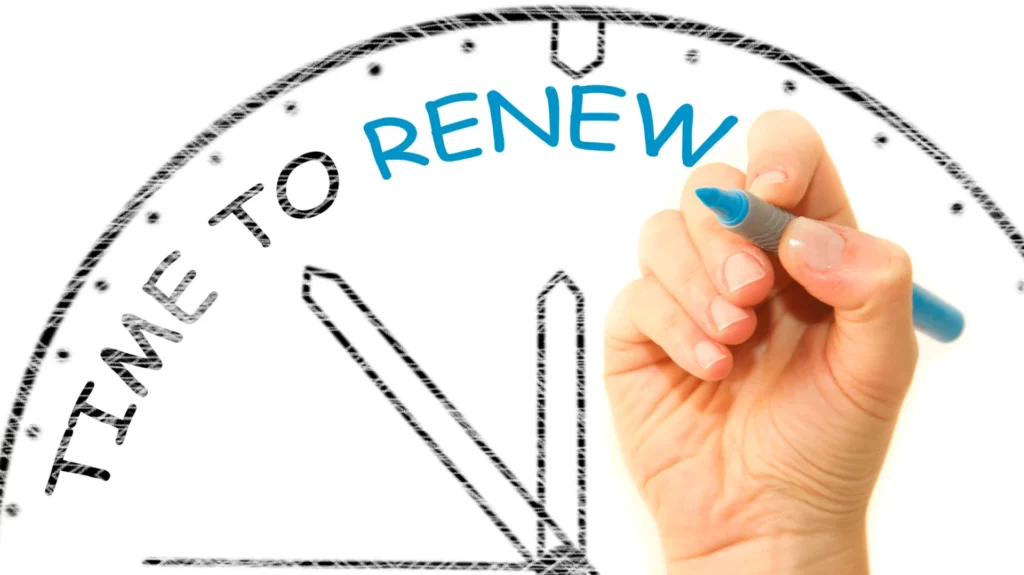
Is your mortgage term coming to an end in Ontario? I’m here to help you understand what options and strategies are available to you for your mortgage renewal. It’s important to consider if a renewal is what you need and how to navigate the variables involved in a mortgage renewal. Other considerations during your renewal cycle could involve a mortgage transfer instead of renewal with your existing lender. With the current interest rate environment, exploring your mortgage renewal and transfer options is essential to secure the best possible outcome for your real estate financing goals.
When your current mortgage term reaches its end, it’s time for a renewal. This is an excellent opportunity to reassess your financial situation and explore new mortgage options that might better suit your current needs. Lenders offer various early renewal options that range from 30 days to around 120 days or more. It’s recommended to seriously think about your renewal options and goals about a year out from the renewal date. Waiting until 30-60 days out from your renewal date increases the chances of rushed renewal decisions which lead to picking the most convenient option available rather than the most optimal option.

Notification: Your current lender will typically send a renewal offer before your term expires, often 30 to 90 days in advance. If you have worked with a mortgage agent to secure your mortgage, they are likely to reach out to you in advance to talk about your plans as well.
Review the Offer: Examine the terms, including the interest rate, offered by your lender. Don’t feel obligated to accept this first offer. When working with a mortgage agent, we will help you assess your options with your existing lender as well as options available from other lenders.
Shop Around: Research current mortgage rates from various lenders to ensure you’re getting the best deal. This is where the value of a mortgage agent can be very helpful. We have many lender contacts that we can tap into to get you access to the best rates and products at any given time.
Negotiate: Contact your current lender to discuss the possibility of better terms. Lenders are often open to negotiation to retain clients. This is something that you can either do on your own, or you can leverage a mortgage agent to do this on your behalf if they also deal with the same lender.
Finalize: Once you’ve decided on the best option, finalize the renewal. This could mean signing a new agreement with your current lender or transferring to a new one. Before finalizing your mortgage pathway, a mortgage agent would help you assess the associated costs and implications of transferring or refinancing instead of renewing.
Consider an early renewal if you anticipate interest rates rising or if you want to lock in a lower rate. Most lenders allow you to renew your mortgage up to 120 days before your term ends without incurring penalties. This is most beneficial if you have your finances in order, you might already have optional access to your equity, or otherwise don’t need access to it, and you are looking to lock in a rate at that time. If the rate market is trending downward, it would be a scenario that you might want to avoid considering an early renewal.

Renewal denial can occur if your financial situation has significantly changed. If your lender denies your renewal, don’t panic:
Review Your Finances: Consult with a mortgage agent to understand why the renewal was denied. It could be due to a lower credit score, decreased income, or increased debt, among other reasons.
Explore Other Lenders: Some lenders specialize in working with clients who have faced renewal denials. Once you have a focused sense of why the denial occurred, you can leverage a mortgage agent’s lender partners to find a solution that addresses your situation.
Consider a Mortgage Agent: It is worth re-emphasizing the value of connecting with a mortgage agent in these scenarios. A mortgage agent can provide access to a wide range of lenders and find one that fits your current financial situation. Due to the nature of mortgage denials, we often need to connect with B lenders and private lenders to find immediate solutions. The sooner we are involved, the more likely your chances are of finding alternatives without making rushed or panicked decisions.
A mortgage transfer, or mortgage switch, involves moving your mortgage from one lender to another. This can be an option if another lender offers a more favorable interest rate or better terms.
Benefits of Mortgage Transfers

Consult with a Mortgage Agent: Discuss your options and find the best new lender for your situation. This conversation can often begin as a renewal discussion, and once the details of your current goals and the current product offerings are clarified, transfer options often become more relevant.
Apply for a New Mortgage: Complete an application with the new lender. They will assess your financial situation. This process is essentially no different than your mortgage application experience to secure your home. The essential financial details are collected, and instead of your purchase information, lenders use your existing mortgage information for the property.
Assessment and Approval: The new lender will evaluate your application, perform a credit check, and appraise your property. This process is also facilitated by your mortgage agent, making sure to anticipate and address the approval conditions required by the lender.
Legal Process: Once approved, legal documents will need to be signed. This can involve a lawyer or notary, or it could often include a partner like FCT. The costs of a transfer vary based on whether independent legal advice is required, or whether the legal aspects of the transfer are facilitated by FCT.
Penalties and Fees: Be aware of any potential penalties or fees associated with early renewal or transferring your mortgage. This is essential to take the time to learn and understand, which is why it is more beneficial to you to begin your renewal discussions with your mortgage agent early.
Interest Rates and Market Trends: Stay informed about current market trends and how they might impact your mortgage interest rate. These variables are never static, and therefore, they will always need to be taken into consideration when you are deciding on the best strategy to address your mortgage-related goals.
Mortgage renewal is a critical financial decision. It’s a chance to reassess your mortgage and ensure it aligns with your current and future financial goals. Whether considering an early renewal, facing renewal denial, or exploring mortgage transfer options, it’s crucial to be well-informed and seek expert advice. As a mortgage agent licensed in Ontario, I am equipped to address any mortgage renewal situation to help you find the best outcome for your goals while educating you on the essentials of mortgage-related knowledge along the way. Do you have a renewal coming up? Reach out to learn about your options.

Q1: When should I start thinking about my mortgage renewal?
A1: It’s wise to start considering your mortgage renewal options 6 to 12 months before your current term ends. This gives you ample time to assess the market, compare rates, and negotiate with lenders.
Q2: Can I negotiate my mortgage renewal rate with my current lender?
A2: Absolutely. You have the leverage to negotiate with your current lender. They often prefer to keep existing clients and may offer competitive rates or better terms. Don’t hesitate to discuss your needs and see if they can meet or beat offers from other lenders. This also means that you should be assessing other options before that discussion with your lender.
Q3: Is there a penalty for renewing my mortgage early?
A3: Typically, many lenders allow you to renew your mortgage up to 120 days before the term expires without penalties. However, renewing earlier than the designated period might incur penalties. It’s important to check the specifics of your mortgage agreement.
Q4: What happens if my mortgage renewal is denied?
A4: If your renewal is denied, usually due to changes in your financial situation or credit score, consider reaching out to other lenders. Different lenders have varying criteria, and a mortgage agent can help you find one that suits your current circumstances.
Q5: Should I switch lenders at renewal time?
A5: Switching lenders at renewal can be beneficial if another lender offers a significantly better rate or more suitable terms. However, consider any associated costs, such as legal fees or penalties, before making the switch.
Q6: How does credit score impact mortgage renewal?
A6: A good credit score can give you access to better interest rates and terms. If your credit score has improved since you first obtained your mortgage, you might qualify for more favorable terms upon renewal.
Q7: What documents do I need for mortgage renewal?
A7: For a straightforward renewal with the same lender, extensive documentation is often not required. However, if switching lenders or refinancing, you’ll likely need recent pay stubs, tax documents, a list of assets and liabilities, and possibly a new property appraisal. Similar to when you bought the property.
Q8: Can I consolidate debt at the time of mortgage renewal?
A8: Yes, mortgage renewal can be an opportune time to consolidate high-interest debt. You can refinance your mortgage to a higher amount and use the extra funds to pay off other debts, potentially simplifying your finances and reducing overall interest costs. Alternatively, you can look at a second mortgage or a HELOC if it is discovered to be a better option while moving forward with your renewal.
Q9: How does refinancing differ from a standard mortgage renewal?
A9: Refinancing involves changing the terms of your mortgage, often increasing the loan amount and changing the rate and term. A standard renewal typically means continuing with the same mortgage amount and similar terms, while negotiating a new interest rate and term.
Q10: What factors should I consider when deciding between a fixed or variable rate at renewal?
A10: Consider your risk tolerance and financial situation. A fixed rate offers stability and predictability in payments for the duration of the term, while a variable rate can offer immediate savings if interest rates decrease. Also, consider the current and forecasted economic conditions when assessing the optimal choice in relation to your risk tolerance.
Get professional advice and responsive service. I’m here to assist you every step of the way. Contact me now for a seamless experience.
I understand that purchasing a home can be a complex and overwhelming process. With fast, dedicated, and responsive service, I am committed to ensuring a smooth delivery every step of the way. Contact me today to experience the difference in personalized service and let me help you achieve your goals.
Mortgage Agent Level 2 #M21005255
Smart Debt Mortgages
Brokerage License #12236
Content on this site supported by OpenAI